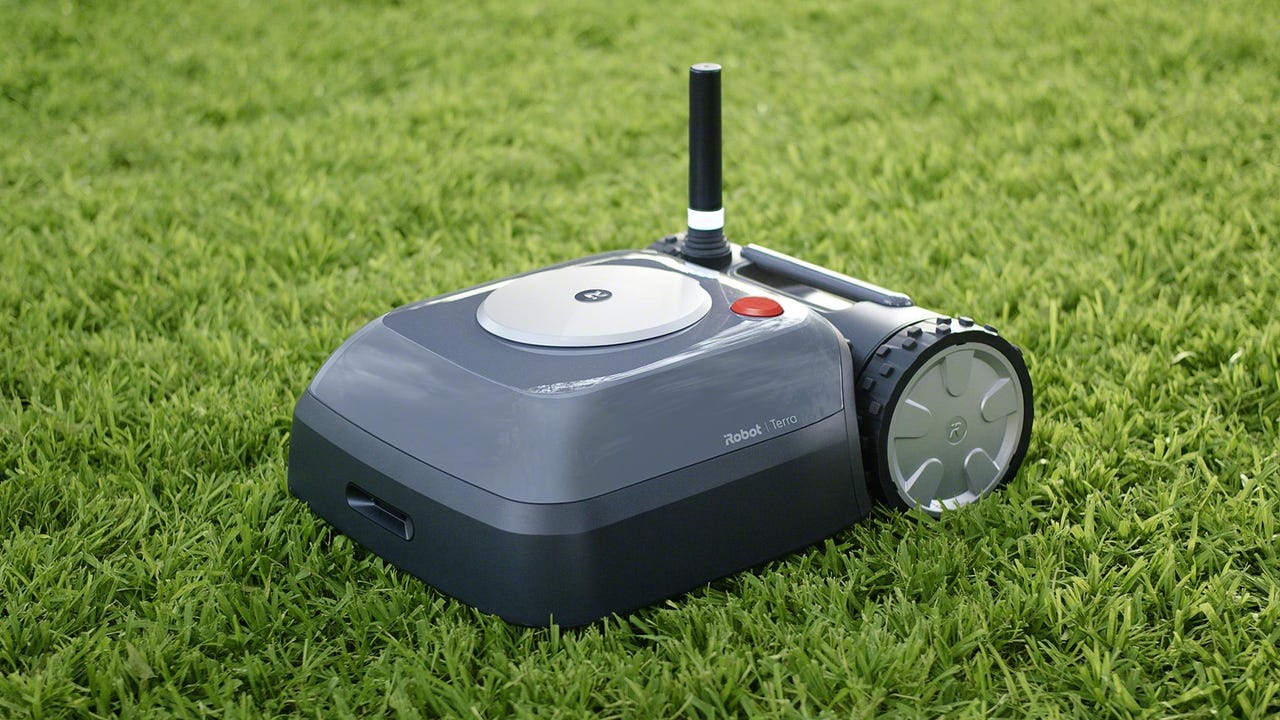Mowing the lawn sucks. iRobot made an autonomous lawnmower to help.


iRobot has a new autonomous gizmo to make your life a little lazier. Today, the company that brought you Roomba is announcing a new robotic lawnmower called Terra.
The debut has been long-anticipated. iRobot debuted Roomba way back in 2002. When the now ubiquitous vacuum came out, it was revolutionary, the first robot that people couldn't wait to have in their home (I'm ignoring robotic appliances like washing machines, because everyone else does in the conversation about home robotics).
Fast forward to 2019 and iRobot is in a very different position with its new lawnmower. The market for autonomous lawn maintenance is still relatively new, but there are a number of companies in the space already and the technology is no longer a novelty. Legacy brands like Husqvarna and Honda and robotics players like Israel's Robomow have already established distribution partnerships with conventional retailers.
By one lofty estimate, the category will be worth $3 billion by 2023.
If you live in the U.S., this may all come as a surprise. That's because the market for robotic lawnmowers is more robust in Europe, where lawns are smaller and, crucially, landscaping costs are far higher. In the U.S., landscaping is a decidedly low-wage job, one long supported by immigration.
A morning stroll around Los Angeles, where I live, has always been accompanied by the buzz of lawnmowers and the whirr of edgers as legions of landscapers tend to residential and commercial lawns. A robotic system won't be as capable as a human landscaper any time soon, and with labor costs so low, it's difficult to imagine many of those Angelenos making the switch.
Nevertheless, iRobot has long been the technology leader in home robotics, and insights from many model generations of vacuums and mops may give it an edge over the competition. Terra's big selling point is that, unlike many systems, it doesn't require boundary wires to define the out perimeter of a workspace.
Instead, Terra relies on mapping and navigating strategies that will be familiar to owners of newer Roomba systems.
"iRobot is building an ecosystem of robots and technologies that help people do more both inside and outside of the home," said Colin Angle, chairman and CEO of iRobot. "The robot mower segment is well established in EMEA and has tremendous room for growth in other markets, including North America. With its ease of use and premium mowing features, Terra is poised to give consumers a whole new way to think about how they take care of their lawn."
Like Roomba, Terra is also connected and users can modify settings via the iRobot HOME app.
Not surprisingly, iRobot is launching Terra in Germany, where there's a demonstrable market for the technology. But it will also be offered for sale in the U.S. in 2019 via a beta program. Specific dates for the trial to follow.